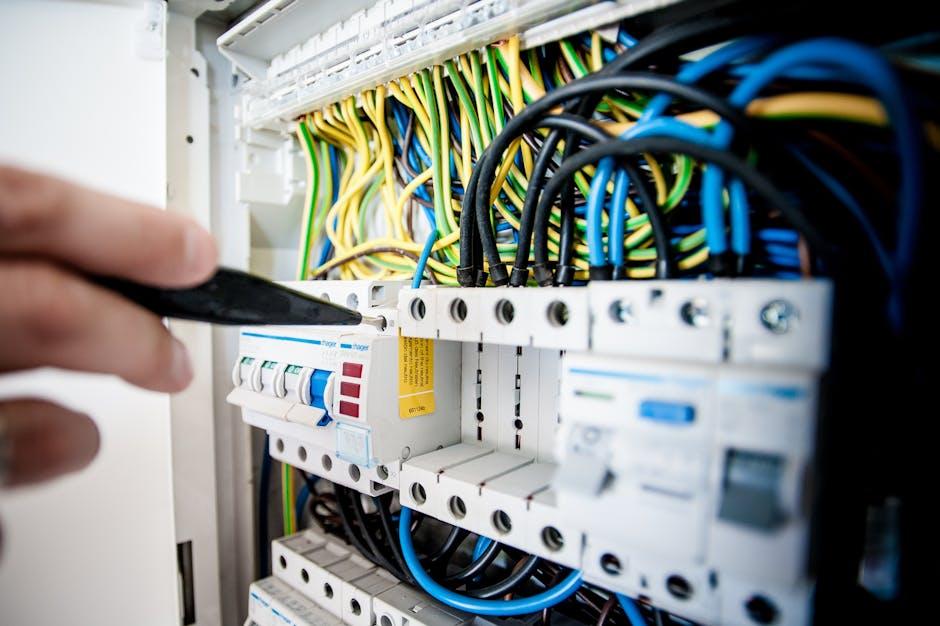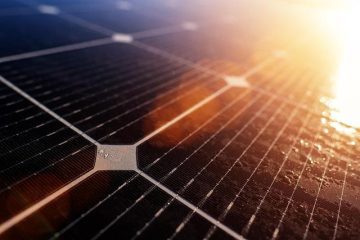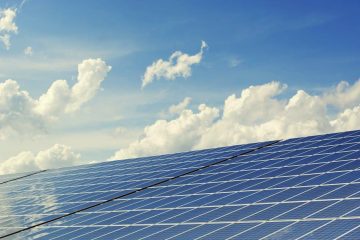Table of Contents
- Evaluating the Benefits of Investing in Solar Panels
- Understanding Different Types of Solar Panels for Your Needs
- Factors to Consider When Choosing a Solar Panel Provider
- Financing Options and Incentives for Solar Panel Purchases
- Maintenance Tips to Optimize Your Solar Panel Performance
- Q&A
- Concluding Remarks
Evaluating the Benefits of Investing in Solar Panels
Investing in solar panels offers a multitude of financial and environmental advantages. One of the primary benefits is the significant reduction in energy bills. By harnessing solar energy, homeowners can decrease reliance on traditional electricity sources, leading to substantial savings over time. Moreover, many regions offer incentives, rebates, and tax credits that can further offset the initial investment costs, making solar energy not just a sustainable choice, but also a financially savvy one.
Another compelling reason to consider solar panels is their positive environmental impact. Solar energy is a clean, renewable resource that helps reduce greenhouse gas emissions. By switching to solar, you contribute to a decrease in air pollution and the overall carbon footprint, promoting a healthier environment. Additionally, as solar technology continues to advance, the efficiency of solar panels improves, requiring less space and yielding more energy, making them an increasingly attractive option for homeowners.
Furthermore, solar panels can enhance property value. Real estate studies consistently show that homes equipped with solar energy systems sell at a premium compared to those without. Buyers are often willing to pay more for a property that offers long-term savings and reduced utility costs. Here’s a simple comparison of the added value solar panels can bring:
| Home Features | Average Increase in Property Value |
|---|---|
| Homes with Solar Panels | $15,000 - $30,000 |
| Homes Without Solar Panels | Standard Market Value |
the multifaceted benefits of solar panel investment — from cost savings to environmental responsibility and increased home value — make it a smart decision for homeowners looking to improve their quality of life and contribute to a sustainable future.


Understanding Different Types of Solar Panels for Your Needs
When considering solar panels, understanding the various types available is crucial to making an informed decision that suits your unique energy needs. Monocrystalline panels, known for their high efficiency and longevity, are made from a single crystal structure. They require less space than other types and convert more sunlight into electricity, making them ideal for households with limited roof space. However, their typically higher price may be a consideration when budgeting.Polycrystalline panels offer a more affordable alternative, formed from multiple silicon crystals. Although they are slightly less efficient than monocrystalline panels, their lower manufacturing costs make them a popular choice for many homeowners. If you have ample roof space and are looking for a cost-effective solution, polycrystalline panels could meet your energy needs while still being environmentally friendly.Thin-film solar panels represent another option, characterized by their lightweight and flexible design. They can be integrated into various surfaces and are often used in large-scale solar installations. While they generally have lower efficiency and require more space, their performance in high temperatures and shading makes them appealing for specific applications. By weighing these factors, you can select the best solar panel type tailored to your energy consumption patterns and installation environment.| Type of Solar Panel | Efficiency | Cost | Best For |
|---|---|---|---|
| Monocrystalline | 15-22% | High | Limited roof space |
| Polycrystalline | 13-16% | Medium | Budget-friendly options |
| Thin-Film | 10-12% | Low | Flexible installations |


Factors to Consider When Choosing a Solar Panel Provider
When selecting a solar panel provider, it’s essential to evaluate their experience and reputation in the industry. Look for companies with a proven track record and customer reviews that highlight their reliability, quality, and service. A provider that has been in business for several years is likely to have more knowledge and expertise, ensuring that they can guide you effectively through the solar installation process. Moreover, consider asking for recommendations from friends or family who have previously installed solar panels.
Pricing and financing options are crucial aspects to consider. While it might be tempting to go with the lowest price, remember that quality often correlates with cost. Look for a provider that offers clear pricing structures, including installation, maintenance, and warranties. Additionally, explore various financing options such as purchasing outright, leasing, or power purchase agreements (PPAs). A table comparing the advantages and disadvantages of these financing options can help clarify which option suits your needs best:
| Financing Option | Advantages | Disadvantages |
|---|---|---|
| Outright Purchase | Full ownership, maximum savings | High upfront cost |
| Lease | Minimal upfront cost | No ownership of the system |
| PPA | Pay only for energy produced | Long-term commitment |
Lastly, assess the level of customer support and service that the provider offers post-installation. A reputable solar panel installation company should be available to answer questions and provide maintenance services. Research their warranty coverage and support services to ensure you have peace of mind long after the installation. A transparent and responsive customer service approach can make all the difference in your overall experience with solar energy.


Financing Options and Incentives for Solar Panel Purchases
When considering the switch to solar energy, understanding the financing options available can make the investment more manageable. Homeowners can choose from a variety of methods to fund their solar panel purchases. Some common options include:
- Solar Loans: These are specialized loans designed to help cover the upfront costs of installation. They can be secured or unsecured, with terms ranging from 5 to 20 years.
- Leases: With a solar lease, you pay for the system’s use rather than purchase it outright. Monthly payments are typically lower than loan payments, providing immediate savings on energy costs.
- Power Purchase Agreements (PPAs): Another financing option, PPAs allow homeowners to pay for the electricity produced by the solar system at a predetermined rate, which is often lower than local utility rates.
In addition to financing, various incentives are available to further reduce the overall cost of solar panel installation. These can significantly improve the return on your investment. A summarized list of some key incentives includes:
- Federal Investment Tax Credit (ITC): This allows homeowners to deduct a significant percentage of the installation costs from their federal taxes.
- State Incentives: Many states offer their own programs, such as rebates, tax credits, or performance-based incentives, that can further drive down costs.
- Local Utility Rebates: Certain utility companies provide incentives for reducing energy load through solar power, which can lead to immediate savings.
For a clearer picture of your potential savings, consider this table that outlines how various financing options can impact monthly payments and savings over time:
| Financing Option | Monthly Payment | Estimated Savings/Year |
|---|---|---|
| Solar Loan | $150 | $1,500 |
| Lease | $100 | $1,200 |
| PPA | $120 | $1,350 |
By leveraging these financing options and incentives, homeowners can make a more informed decision about transitioning to solar energy, optimizing both their investment and sustainability goals.


Maintenance Tips to Optimize Your Solar Panel Performance
To ensure that your solar panels operate at peak efficiency, regular maintenance is essential. Start by performing a straightforward visual inspection every few months. Look for debris, such as leaves, dirt, or snow, that could obstruct sunlight from reaching the panels. Checking for any signs of damage, like cracks or discoloration, is also crucial. If you spot anything unusual, it’s wise to consult a professional for a comprehensive review.
Cleaning your solar panels is another critical aspect of maintenance that can significantly enhance performance. Ideally, they should be cleaned at least twice a year, or more frequently if you live in an area with heavy dust or pollen. Use a soft cloth or a sponge with warm, soapy water to gently wash the panels. Avoid using abrasive materials that could scratch the surface. If you’re unsure about doing it yourself, consider hiring a service that specializes in solar panel maintenance.
– Regular Monitoring: Implement a monitoring system to track your solar energy production. This can help you identify any drops in efficiency early. - Professional Inspections: Schedule annual professional inspections to ensure all components, including inverters and wiring, are in good condition. – Check for Shade: Keep an eye on nearby trees or buildings that could cast shade on your panels as they grow. Regular pruning may be necessary to maintain optimal sunlight exposure.
| Maintenance Task | Frequency | Who Performs |
|---|---|---|
| Visual Inspection | Every 3 months | Homeowner |
| Panel Cleaning | Every 6 months | Homeowner or Service |
| Professional Inspection | Annually | Professional |
Q&A
Q&A: Everything You Need to Know About Buying Solar Panels
Q1: What are solar panels, and how do they work?
A: Solar panels are devices that convert sunlight into electricity. They consist of many solar cells made from silicon that capture photons from sunlight. When these photons hit the cells, they create an electric field, thus generating direct current (DC) electricity. This DC power is then converted into alternating current (AC) electricity for use in homes and businesses.Q2: Why should I consider buying solar panels?
A: Investing in solar panels offers numerous benefits. Firstly, they can significantly reduce your electricity bills, giving you long-term savings. Additionally, they contribute to environmental sustainability by decreasing your carbon footprint. Some regions also offer tax incentives or rebates to promote solar energy adoption, making it a financially appealing option.Q3: What factors should I consider before purchasing solar panels?
A: Before making a decision, consider the following factors:- Energy Needs: Evaluate your household’s energy consumption to determine the appropriate solar panel size.
- Roof Condition: Ensure your roof is structurally sound and can support solar panels.
- Sunlight Exposure: Assess how much sunlight your location receives daily, as this affects energy production.
- Budget: Establish a budget that includes installation costs and potential financing options.
- Local Regulations: Familiarize yourself with local building codes and homeowners association rules regarding solar installations.
Q4: How much do solar panels cost?
A: The cost of solar panels varies widely based on several factors, including the type of solar panels, installation fees, and specific market conditions. On average, homeowners can expect to pay between $15,000 to $30,000 for a complete solar panel system before any incentives. However, costs can be reduced with rebates and tax credits.Q5: What types of solar panels are available for purchase?
A: There are primarily three types of solar panels to consider:- Monocrystalline: Known for their efficiency and space-saving design, these panels are made from a single crystal structure.
- Polycrystalline: Often less expensive, these panels are made from multiple crystal structures, but they tend to have slightly lower efficiency than their monocrystalline counterparts.
- Thin-Film: These lightweight panels are flexible and can be integrated into various surfaces but typically offer lower efficiency rates.
Q6: How can I choose a reliable solar panel provider?
A: To find a dependable solar panel provider, consider the following:- Research Reviews: Look for testimonials and reviews from previous customers.
- Check Certifications: Ensure the provider holds relevant certifications and licenses.
- Compare Warranties: Assess the warranty offerings for both panels and installations.
- Get Multiple Quotes: Obtaining several estimates can help you gauge the market price and service quality.




0 Comments